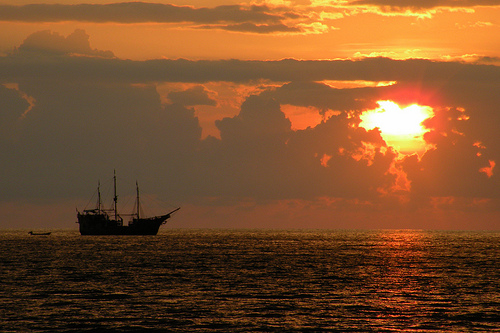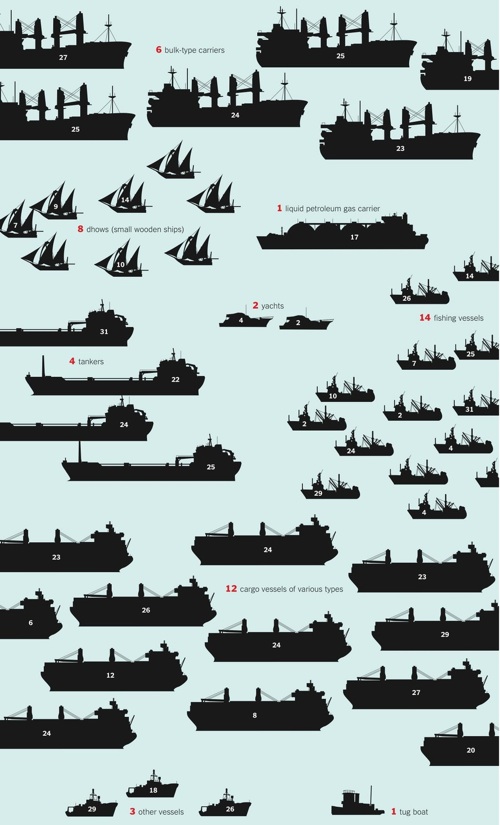
(photo credit: paulhami)
Sometimes it’s true: the best way to deal with a bully is to ignore him. But everyone’s got to have a back-up plan, and it looks like the U.S. is getting fed up with the Somali pirate industry.
- Back in 1801, when pirates still wore stockings, Thomas Jefferson decided to end America’s policy of paying off pirates for safe passage through the Mediterranean. The Tripoli-based scoundrels demanded bigger fees, but all they got was a war with the U.S.
- Today may be another turning point; Somalian pirates have been a menace to shipping companies for years, but never before have they been so violent. The recent murder of four vacationing Americans raises the question of just how much the U.S. is willing to take to avoid a major conflict with an ugly enemy.
- The U.S. is hesitant to take military action against the pirates because it’s just too big a job for an army that’s already stretched thin. The ocean is immense, piracy has roots throughout the “failed state” of Somalia, and there is no other viable economy to replace piracy with once it’s eliminated.
Facts & Figures
- The average ransom for a captured ship is $5 million
- The average amount of time hostages spend in captivity is 6 months
- The “red zone” occupied by predatory Somalian ships is bigger than 1 million square miles of ocean
Best Quote
“Of course, I do not know what the U.S. will do in response to this latest atrocity. But Jefferson advocated an armed response and eventually war against Tripoli for far less provocation.” – Frank Lambert, professor at Purdue and an expert on the Barbary pirates
What do you think?
What company could come up with a profitable pirate-control product?
Get to it!
Check out the damage done as of the end of February 2011 in this New York Times infographic. The red numbers show number of vessels currently occupied by Somali pirates, and the white numbers show the number of civilians held hostage on each.

(credit: Bill Marsh and Scott Garapolo/The New York Times)


